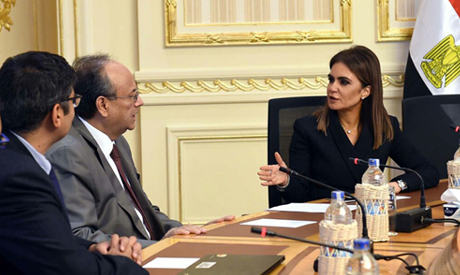Egypt is negotiating the third and final $1 billion tranche of a $3 billion World Bank loan to support the government’s economic reform programme, the Ministry of Investment and International Cooperation (MIIC) announced on Wednesday.
The World Bank stated on Monday that it had handed over the second $1 billion tranche to Egypt, with the funds intended for fiscal consolidation, ensuring energy supply and enhancing competitiveness in the private sector.
Following the transfer of the funds, Minister of Investment and International Cooperation Sahar Nasr met in Cairo with a high-level World Bank mission that has been visiting Egypt since mid-March.
They discussed efforts to improve the business environment and advance Egypt’s ranking in the Doing Business Report, according to statement on the ministry’s website. The annual report examines regulations and regulatory processes involved in setting up and operating a business in different economies worldwide.
“Egypt aims to carry out a number of refoms to improve its ranking among the emerging economies,” the minister said, according to the statement.
In 2014, Egypt launched a plan to introduce fiscal reforms, including fuel subsidy cuts that raised prices by up to 78 percent, while levying new taxes to ease the growing budget deficit, currently estimated at 12.2 percent of GDP.
“The government will continue to carry out several reforms to support the private sector, which will contribute to increasing the investment volume in Egypt,” Nasr added.
According to the minister, the current discussions follow the delivery of the second tranche of funding worth $1 billion, which she said indicates that the Egyptian economy is on a steady path to comprehensive development.
Egypt received the first tranche of the loan in September.
“MIIC developed a prompt action plan to achieve tangible achievements with a view to attract further foreign investments, improve the national economy, and intensify the private sector’s participation nationwide,” Nasr explained, adding that an integrated and comprehensive investment plan, including various investment opportunities nationwide, was also under development.
The World Bank finances several projects in Egypt, including projects related to energy, transport, water and wastewater, agriculture and irrigation, population and health, and social safety nets. It also supports employment-intensive projects and finances small- and medium-sized enterprises.
The current portfolio of the World Bank in Egypt includes 26 projects with a total commitment of $5.92 billion, according to the organisation’s data.


